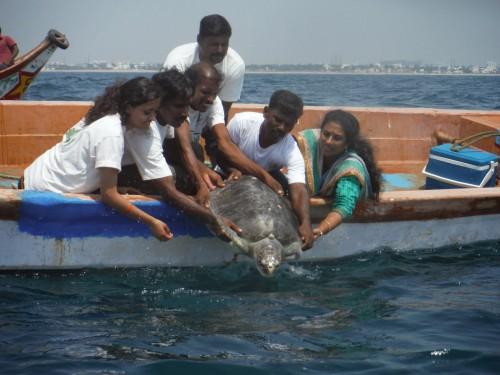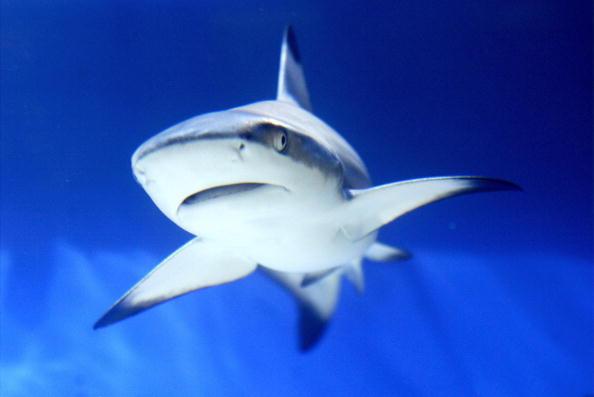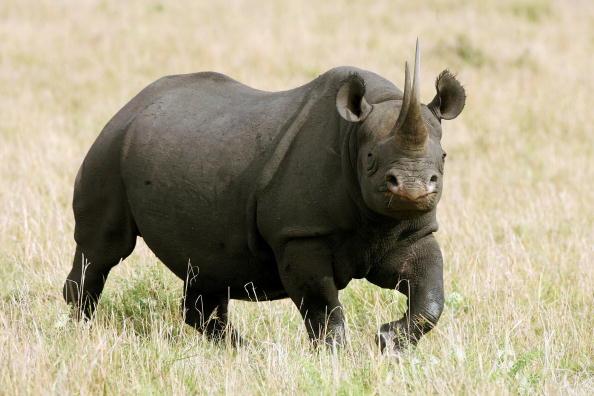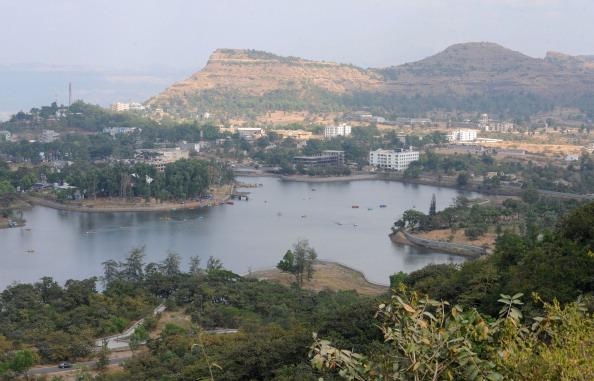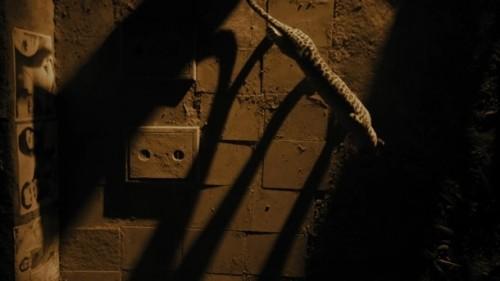Life is full of natural dangers and challenges for all sea creatures. But what adds to these challenges are myriad perils in the form of various fishing nets cast by us humans endangering all creatures thriving in the vast oceans. One such animal that became the victim of a man-made challenge was a two decade old Olive Ridley turtle that was found washed up at the beach at Mahabalipuram in Tamil Nadu. It had a missing flipper due to collision with a trawl boat out in the sea! Weak with dehydration and maybe even from nesting, the turtle was unable to go back into the sea and barely alive when found. But thanks to the efforts of a local conservation organisation, the turtle was finally able to go back into the waters where it belonged on World Turtle Day 23rd May this year.
Fondly named Pallavi, on being spotted at a place which was ruled by the erstwhile Pallava dynasty, the female Olive Ridley turtle was one of the 23 others which were rescued and rehabilitated by the Tree Foundation since it was formed in 2002.
A number of other turtles that encountered the trawl boat were not so lucky and were found dead with either chopped flippers or smashed heads. But the volunteers hoped they could save this particular member of the species which are listed as Vulnerable by the International Union for Conservation of Nature (IUCN) Red list.
The Students Turtle Conservation Network (STCN) is another organization founded in 1988 engaged in such conservation activities. Both these organizations work hard to help in the conservation of Olive Ridley Turtles. Volunteers from both the organizations conduct Turtle walks on the beaches whereby on spotting a nest, the eggs of the Olive Ridley Turtles are transferred to the hatcheries.
While under the care of the Tree Foundation Rescue and Rehabilitation centre, Pallavi’s nutritional needs were well catered to. It was regularly fed a variety of fresh seafood offered by the fishing community volunteers.The turtle that weighed 20.5 kg when it beached, gained 3.1 kg body weight while under the care of these volunteers. Its shell was 65 cm long and 64.2 cm wide, said Supraja Dharini, chairperson, TREE Foundation.
After a systematic check up for internal injuries, Pallavi was finally released into the sea again near the coast of Neelankarai on the World Turtle Day, 23rd May this year. Supraja added that it was released near a rock formation, where a wide variety of prey fish are always found, in order to make it easy for her to feed. Hopefully, Pallavi’s young ones might also be in the sea now, with the last batch of hatchlings for the season being released.
A Better Alternative
Owing to their extraordinary mass nesting behaviour, many times the ill fated Olive Ridley Turtles end up as a by-catch in trawl nets. The coastline of Odisha, one of the largest mass nesting sites in the world, has seen more than 50,000 dead turtles between 1993 and 1999 on account of illegal fishing. As a step towards protecting this vulnerable species, TEDS (Turtle Excluding Devices) are now fitted to trawl nets in which a ‘trap-door’ in the net allows the large turtles to escape from the nets. Although not widely in use yet, this is definitely a positive effort being made for conserving the species and may very well work when implemented on a large scale.
This article was originally posted and published by Shilpi Gemawat, a contributing writer for www.indiasendangered.com. Please click HERE for the original article and more information.
